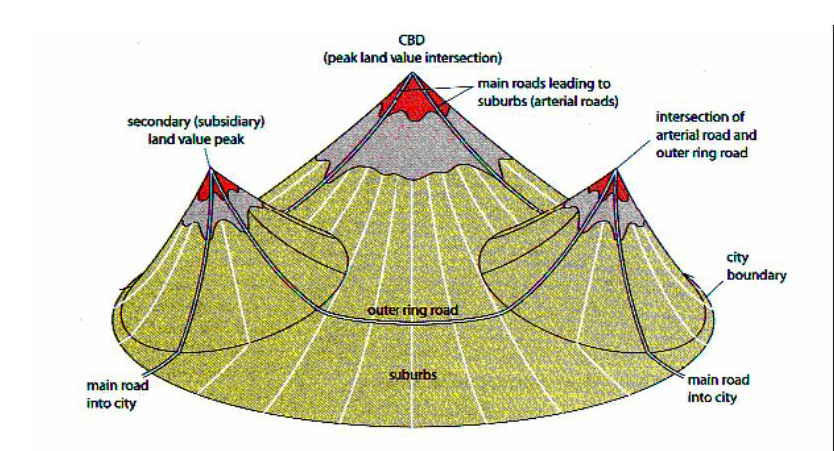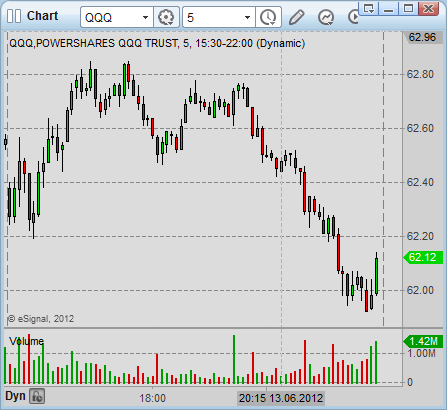Why the world is waging economic war on Russia

We will conclude by asking how each was affected by the crisis and how they might look in the future. We will argue that Russia’s experience is more than just oil and gas dependence. What makes Russia unique is the combination of resource dependence with addiction and its specific rent management system. Wells Fargo tumbled 5.8% and the broader banks index (.SPXBK) declined 4.8% as U.S. 10-year Treasury yields slumped to five-week lows amid a flight to safe-haven debt.

Further, Russia has a major influence over several of Armenia’s important economic sectors, or even holds monopolies in some of them particularly in the areas of energy, minerals, and food. The World Bank report states that Russia is the source of all of Armenia’s imports of wheat and gas. Remittances, trade, and investment are projected to suffer significantly in Armenia as a result of the Russian financial crisis and the ensuing collapse of the ruble. The price of food and other essentials has increased for Armenians due to global inflationary forces. With Armenia still battling to recover from the twin effects of a pandemic and a severe military defeat to Azerbaijan in 2020, the predicted economic damage from the conflict in Ukraine comes at a bad time for Armenia.
The Kremlin has boasted about Russia’s economic outlook while the central bank has predicted that the economy will grow by up to 2.5% this year, despite crippling western sanctions. Eventually, this will lead to a rise in consumer prices, and it will coincide with the election campaign,” Solovyov added, referring to the Russian presidential election scheduled for March 2024. But he acknowledged that high inflation made it « practically impossible » to form business plans.
The Russian Economic Crisis
Investors have responded by selling oil equities, while there are broader concerns about the government’s ability to weather the storm. Well over a year and a half into the global economic crisis, it is still not clear how events will ultimately play out. Prior to the start of the crisis, many in Russia thought that they were “decoupled” from what happened in the leading industrial economies. The world financial crisis and the bursting of the asset bubble presented Russia with a double shock. It is important to stress this point, because some observers have argued that Russia’s crisis is home grown.
First, the crisis has reminded us of how thoroughly dependent Russia is on oil and gas. In this paper, we will describe the causes and consequences of the crisis in Russia. A strong economic recovery could well embolden Moscow and increase its resistance to the kind of integration that the report advocates. The Russian Economic Crisis, with its perceptive analysis and thoughtful recommendations, is thus both informative and timely.
- These actions amount to the sudden cultural excision of an entire nation.
- Addiction refers to a specific condition in which there is an imperative to allocate rents to the backward production structure that Russia inherited from the Soviet Union.
- Wells Fargo tumbled 5.8% and the broader banks index (.SPXBK) declined 4.8% as U.S. 10-year Treasury yields slumped to five-week lows amid a flight to safe-haven debt.
- As investors sought out higher yields, capital flowed outside of the U.S. and developed countries and into the frontier and emerging markets.
- On 15 September the KIT Finance brokerage failed to pay off its debt, signalling problems in Russia’s financial sector.[47][48] On 8 October the Russian Railways and Alrosa agreed to acquire a 90% stake in KIT Finance.
- The implications are hard to predict, but several consequences are already apparent in the form of bank runs and long ATM lines.
The value of the country’s foreign trade slumped approximately 30 percent during the first two months of 2015 alone, suggesting that things may get worse before improving. In August 2015, oil prices fell to US$37 per barrel and then bounced to more https://1investing.in/ than US$45 on 28 August.[26] Now as OPEC has reduced production from November 2016 oil prices have started to move up and so does the rouble. Sagging exports deprive the Kremlin of treasure just when it wants to replenish its military arsenal.
On 12 May 1998, coal miners went on strike over unpaid wages, blocking the Trans-Siberian Railway. By 1 August 1998, there was approximately $12.5 billion in debt owed to Russian workers. On 14 August, the exchange rate of the Russian ruble to the US dollar was still 6.29. In June 1998, despite the bailout, monthly interest payments on Russia’s debt rose to a figure 40 percent higher than its monthly tax collections.
But Russia is no longer a member of the G-8, and Putin must pursue his strategy of “de-offshorization” alone and with little chance of success. But even if foreign markets remain out of reach, a falling currency theoretically should stimulate domestic production if only because foreign goods inevitably will become too expensive for Russian consumers. Moscow has heralded its food sanctions — which ban the import of European Union and U.S. meat, fruit and vegetables — as just such a chance to force Russians to buy local produce. Putin’s pursuit of greater imperial glory has brought an unrelenting stream of bad economic news. The dramatic collapse of the price of oil means a decline in state revenues and less money for Putin’s ambitious military and social spending projects.
Impact on Russia
The economic crisis thus presents an opportunity to deepen American and European economic ties with Russia and integrate the country more firmly in the international system, something that could, over time, bring Russian and Western interests closer together. Among these are, first, steps to facilitate trade, investment, and capital flows between Russia and both the United States and Europe. Second, the report urges U.S. congressional approval of the so-called 123 agreement that would allow Russia to reprocess used American nuclear fuel. This would benefit Russia financially and perhaps encourage it to play a stronger role in limiting Iran’s nuclear development.
At the time, the Moscow Interbank Currency Exchange (or « MICEX ») set a daily « official » exchange rate through a series of interactive auctions based on written bids submitted by buyers and sellers. When the buy and sell prices matched, this « fixed » or « settled » the official MICEX exchange rate, which would then be published by Reuters. The MICEX rate was (and is) commonly used by banks and currency dealers worldwide as the reference exchange rate for transactions involving the Russian ruble and foreign currencies. The upshot is that U.S. interest rates have been rising more slowly than many experts had initially expected following the first rate hike.
Unemployment
A senior EU official said that by Saturday, Russia was “cornered” in the negotiations. Speaking at an afternoon session of the G20 summit in Delhi, the Indian prime minister said he had “just got the good news that due to the hard work of our teams and your cooperation, a consensus has been reached on the New Delhi G20 leaders’ summit declaration”. Top Russia funds have erased roughly 60% of their value amid Putin’s invasion of Ukraine. And the Russian president will ultimately be required to provide some answers. Yet Russian businessmen and women have been so over-regulated — and over-prosecuted — that the Russian entrepreneur has become an endangered species.
After plunging roughly 30% apiece on Monday, the VanEck Russia ETF and iShares MSCI Russia ETF—the two largest U.S. exchange-traded funds exclusively holding Russia-based stocks—fell another 10% each once the market opened Tuesday. Why Russian businesses would want to expose their offshore earnings to Russian taxes once they have gone through the trouble of transferring their money out of the country remains a big mystery. Ironically, Putin had intended to use Russia’s chairmanship of the G-8 to lead a global fight against tax havens and offshore banking.

The only silver lining for Russia is that the prices of its commodity exports have surged. European governments carved out energy sales from the sanctions, letting customers continue buying natural gas—whose spot price has more than doubled—from Russia. Revenue from oil and gas funded a third of Russia’s government budget in 2021, enough for two years of military spending at the pre-war rate.
Business Lookahead
Addiction’s most pernicious feature is that it is self-reinforcing, which means that it continually deepens and reproduces backwardness and inefficiency in the Russian economy. Volume on U.S. exchanges was 14.9 billion shares, compared with a 12.3 billion average for the full session over the last 20 trading days. The conflict axiomatic definition of boolean algebra has drawn sharp reprisals from the West including the blocking of certain Russian lenders’ access to the SWIFT international payment system. A senior Kremlin aide admitted on Monday that a weak rouble had a “negative effect” on the “population’s real incomes” but said Moscow expected the currency to bounce back shortly.
Secretary Antony J. Blinken Remarks to the Johns Hopkins School … – Department of State
Secretary Antony J. Blinken Remarks to the Johns Hopkins School ….
Posted: Wed, 13 Sep 2023 18:03:43 GMT [source]
Yet, Russian president Vladimir Putin smirks at the burning buildings of Credit Suisse and the lost $200 billion in Silicon Valley Bank deposits, needing unprecedented FDIC support to protect account holders. But only because most of Russia’s banks over the years have been folded and rendered insolvent, and a danger to the Russian financial system. Russia’s financial sector, and its banks at home, aren’t making headlines like banks in the U.S. and Europe are.
Those funds need to be uncovered and placed under sanctions, the note said. Those reserves will be untouched until Russia pays for the damage it caused in Ukraine, the G7 said at a recent summit. Using that money now to help rebuild Ukraine would have an « enormous » symbolic impact, researchers said, especially since Russia has likely written off those funds as permanently lost.
It makes a valuable contribution to the debate over how to deal with a weakened but still highly relevant Russia. As Russia sells less crude, it is also trying to sell more of its premium refined oil—its second tactic for keeping proceeds afloat. To do so, it can process more crude through its refineries by mobilising idle capacity, which Kpler estimates at 10% of the total. Analysts reckon it will postpone much of the maintenance scheduled for this month to autumn next year.
And while most banks are protected by the state – led by Sberbank and VTB – the Russian Central Bank has spent much of the last decade working to clean up the financial system. This house cleaning, led by Central Bank president Elvira Nabiullina, which led to the closure of hundreds of private banks, is arguably why sanctions didn’t ruin Russian finance. For this reason, Russian banks have survived the West’s sanctions regime and stock market delistings better than anyone would have imagined. For a cynical Russian, watching Silicon Valley Bank and Credit Suisse burn down while their bankers are gainfully employed is like smirking before the camera lens in front of a burning building. The inability of the Russian government to implement a coherent set of economic reforms led to a severe erosion in investor confidence and a chain reaction that can be likened to a run on the Central Bank. Investors fled the market by selling rubles and Russian assets (such as securities), which also put downward pressure on the ruble.
Strongman economics aren’t working for China and Russia – Axios
Strongman economics aren’t working for China and Russia.
Posted: Tue, 15 Aug 2023 07:00:00 GMT [source]
This forced the Central Bank to spend its foreign reserves to defend Russia’s currency, which in turn further eroded investor confidence and undermined the ruble. It is estimated that between 1 October 1997 and 17 August 1998, the Central Bank expended approximately $27 billion of its U.S. dollar reserves to maintain the floating peg. In November, the volume of Russian paper exports to China decreased by 30–40%, coupled with a 30% drop in prices.
It should therefore encourage reform in post-Soviet states bordering Russia, whose weakness may tempt Russian leaders to pursue a strategy of regional integration and autarky rather than integration into global institutions. In the short term, a weaker rouble could help the authorities to fund its extensive war spending. Russia sells its oil in foreign currency and the current exchange will buy more roubles at home.
For instance, during the year before the crisis, the Central Bank aimed to maintain a band of 5.3 to 7.1 RUB/USD, meaning that it would buy rubles if the market exchange rate threatened to exceed 7.1 rubles/dollar. Similarly, it would sell rubles if the market exchange rate threatened to drop below 5.3. The increased production of shale-based oil and gas in the U.S. could keep pressure on prices over the long term in the $75 to $80 per barrel range. While the Middle East initially kept production at a high to try and encourage shale operations to shut down, OPEC leaders have since reversed course and have relied on production cuts to boost prices. These dynamics helped crude oil prices rebound from their lows made in early 2016 to reach over $50 by 2017.
A government document reviewed by Reuters this month showed that Moscow had doubled its 2023 defence spending target to more than $100bn (£79bn), a third of all public expenditure. Last week the Russian central bank took steps to stabilise the rouble, holding purchases of foreign currency until 2024 “to reduce volatility”. But the move did not immediately stop the currency’s decline, raising worries among Russian policymakers of the possibility of significantly higher consumer prices. Although its geopolitical strategy puts it at odds with the West, Russia is an integrated member of the global economy. Russia trades oil, gas, and coal to much of Europe and wheat to the Middle East and Africa. The sanctions imposed so far amount to a kind of siege of a country that depends on access to global markets.
The crisis affected the Russian economy, both consumers and companies, and regional financial markets, as well as Putin’s ambitions regarding the Eurasian Economic Union. The Russian stock market experienced large declines, with a 30% drop in the RTS Index from the beginning of December through 16 December 2014. Such integration would help align Russian and Western economic, and eventually perhaps political, interests and give Moscow real incentives to be a responsible player in the global economy. The danger is that, should the Russian economy turn around quickly (presumably due to a rapid rise in oil prices), such a strategy of engagement will not have time to take effect. For that reason, the West also needs to hedge against the danger of a renewed Russian push for regional dominance.
Russia is in desperate need of a rational conversation about its economic challenges. Yet Putin refuses to engage in this dialogue because it obviously would interfere with the triumphant narrative dominating the Russian media. His latest diatribe, delivered at the Valdai Club, showed that he is in no mood to compromise and that he continues to blame the United States for Russia’s — and all the world’s — problems. Russian oligarchs and even Putin himself have reportedly hidden the extent of their personal wealth for years.
Leave a reply →